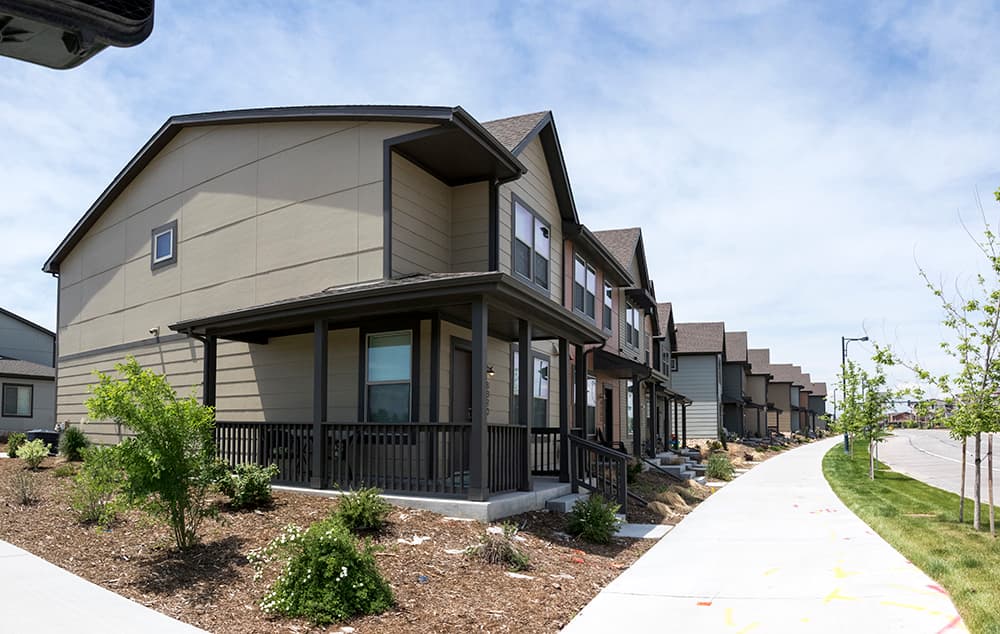The latest market report from the Denver Metro Association of Realtors shows what all buyers are up against. The median home sales price for January was $395,000, up nearly 40 percent from January of 2015. Any of us looking to buy a home in Denver would have to scrape together a down payment and worry about what interest rates will do.
But only some of us might, as Michael Lunden did just a few years ago, have to read an email in which sellers balk at our offer because they don't want a gay couple moving into the neighborhood. Or, as has happened to clients of Derek Camunez, arrive for an appointment to tour a home and be barred entry because of anti-Hispanic bias.
Lunden, who like Camunez is a broker in the Denver area, shared their stories Tuesday at the annual economic summit of the Colorado Association of Realtors to raise awareness about the barriers to the American dream faced by many Americans. They were joined by Lisa Nguyen, who is Asian-American, and Muriel Williams-Thompson, who is African-American, in urging their colleagues to see their role as advocates for clients.
"It is out there," Camunez said of discrimination. "It is up to us to take note of it and say something when you see it."
The legacy of historic discrimination is also a barrier. The homeownership rate among black households was 43 percent in 2017, compared to 72 percent ofwhite households, according to Harvard's Joint Center for Housing Studies. Red lining, the federal government's practice of denying home loans to residents of neighborhoods that were predominately minority or immigrant, meant black and Hispanic families did not have the same chance to turn their homes into wealth they could pass on to their children and grandchildren. As a result, minorities were already at a disadvantage when the great recession hit. They also were disproportionately targeted by the predatory lending practices that helped bring on the housing crisis of the early part of this century.
Williams-Thompson said the focus for all buyers should be on ensuring they understand how lending works and know about programs that can help them make down payments. Increasing inventory and developing affordable housing also are key,
"There's not enough housing out there for anybody," she said.
Williams-Thompson is a member of the National Association of Real Estate Brokers, founded in 1947 to advocate for black realtors and consumers, and of its Denver affiliate. NAREB's most recent annual report on the state of housing in black America lamented that "all gains for blacks in homeownership since the passage of the 1968 Fair Housing Act have been lost." The act prohibits discrimination in the housing market on the basis of race, color, national origin, religion, sex, family status and disability.
Williams-Thompson's great-grandmother was able to buy a house on York Street even though the deed said it should not have been sold to a black buyer. Williams-Thompson's realty company, Town and Country, was founded in Denver in the 1950s by her grandfather, who once had a cross burned on his lawn at 35th and Monaco.
"I don't have to experience bomb threats on my home because I'm selling homes to African-Americans," Williams-Thompson said. She added the discrimination now is more subtle, such as pictures of Confederate flags placed in a home in what she saw as an attempt to warn her off.
Elliot Eisenberg, an economist who spoke at the realtors meeting, said the economy as a whole is held back when some people are denied the chance to build wealth.
"Discrimination really has very high costs," he said. "We harm ourselves in our society when discrimination deprives people of the opportunity to buy the house they want."
Realtors should be prepared to work with any community as a matter of good business sense, Nguyen said. Asians-Americans, she said, "are the fastest growing demographic in the U.S. and there is a ton of buying power."













